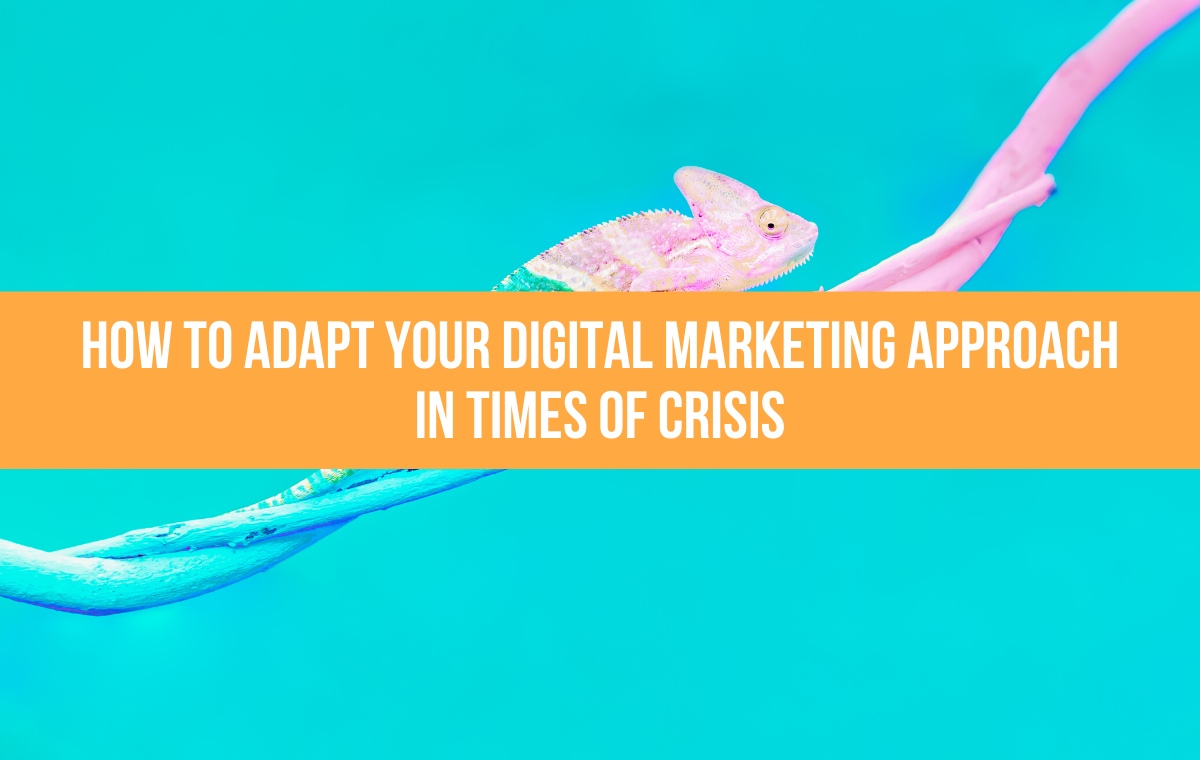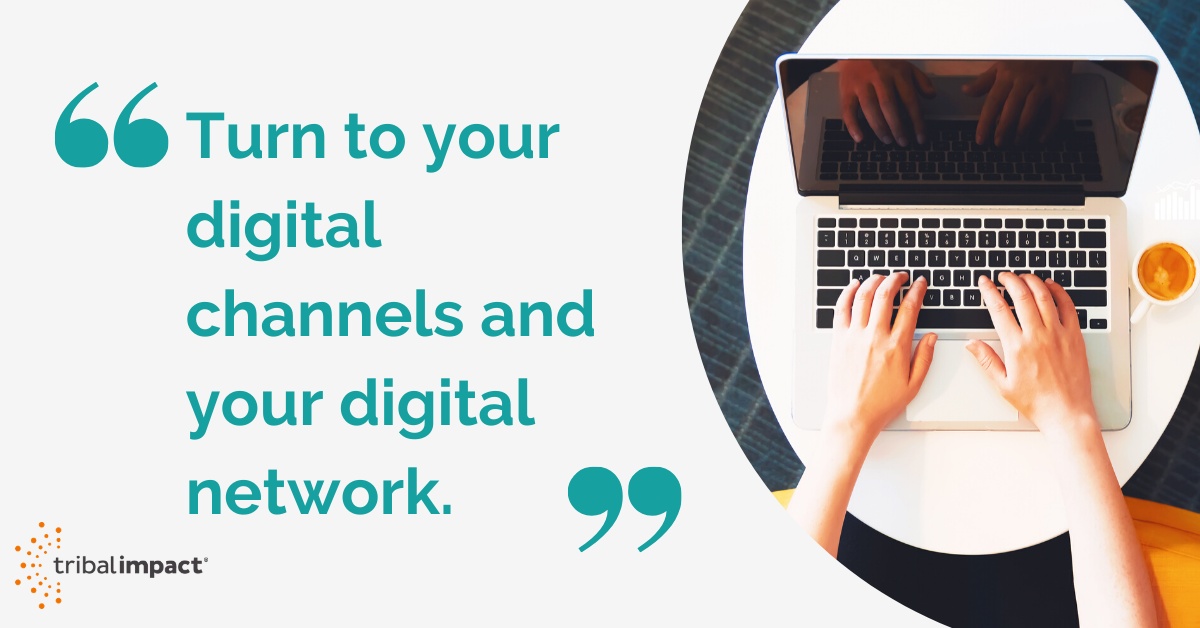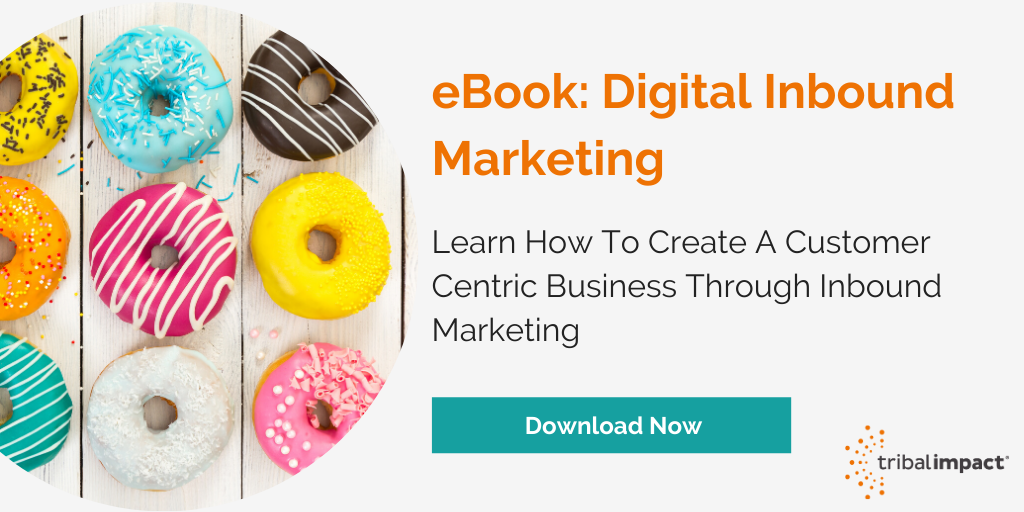At the time of writing this blog, we are in the midst of the coronavirus outbreak. It’s a difficult time for everyone and many businesses are taking a hit. Traditional ways of working are being turned upside down.
Many sales and marketing people will now be working from home and actually, these roles are more important now for businesses than ever. Sales and marketing people are now having to adapt to this new remote culture, change focus all together, adapt conversations and potentially deal with loss of pipeline and customers.

Most businesses already invest in digital marketing, but in times like this, where there is no opportunity for face-to-face meetings or events, it is essential for brands to get on board with digital. And not only digital marketing (a broad term) but inbound digital marketing. This is not the time to be pushing messages, this is the time to be attracting inbound leads because you offer something your prospects need.
Depending on your market and business, your buyers may not be buying much at all – however sharing insights and providing content to genuinely help people do their jobs can enable your business to weather this storm.
A note on messaging first – this is a time to help, not sell. Being seen to leverage this crisis to make more sales is not a good look. However, if your product or service can genuinely help people or businesses navigate this situation then don’t be afraid to talk about it, but don’t try and shoehorn coronavirus in as an angle if it quite simply doesn’t fit.
Here are some tips for adapting your digital marketing approach in times of crisis:
Social Media
Many people are taking to social media as a way to combat the isolation of social distancing, to share stories about what is happening to them currently and share their experiences. Social media management in times like these isn’t easy – how can you carry on as usual when nothing in the world is usual? Businesses must embrace social media now more than ever as a way to connect with audiences. However, the way social channels are managed does need to change in light of the current situation:
- Adapt Your Content
You may have had this weeks, months, quarters, worth of social media content planned or scheduled but it’s likely this will need to be revisited. Is it still relevant or even important anymore? It may mean that 3rd party content needs to be curated on a day by day basis to ensure you’re sharing content that is still relevant, not outdated etc. In terms of sharing branded content – take a look at it – is it something people are concerned about right now? Can it be swapped for content that is more useful currently?
At the end of the day people, businesses, will still be looking for solutions to their problems but focus on sharing helpful content, for example blogs or downloadable offers (eBooks, guides etc) rather than promotional or sales content.
- Engage Your Community
Your customers and your followers on social media are your community. Don’t forget about them – reach out, provide tips, share stories, speak to them – what problems are they facing? Is there anything you can do to help them? This is a time to embrace being human and brand channels tend to be run by humans, so adapt your tone and embrace your virtual community.
- Engage your employees
You might all be working remotely right now, but don’t forget about team spirit! It’s likely your employees will be taking to their own social media channels to share or seek advice, join in their conversations, encourage them to engage with each other, share content that they will find useful – it’s really important to keep your team informed and connected as much as possible and social is a good way to do this.
If they’re willing, encourage them to share their personal stories about how they are getting on, their tips about working from home… they don’t need to share branded content to influence your brand story, their own stories as employees of your business are just as valuable.
Content Creation
Downloadable content offers a great way of driving traffic to your website, your social channels and generating leads. I wouldn’t suggest binning your existing content creation plans altogether due to the current circumstances, but it may be worth shifting the focus from sales led, promotional pieces, to practical, helpful content that is still relevant. Taking an inbound approach is advisable – creating content is still vital for this, but the content needs to be educational.
If there is content you can produce to provide support, tips, advice to your existing customers and community, produce it! This may mean shifting other content creation schedule to make room for this new stance, but really marketing should be agile and adding value at times like this is essential to keep your audience engaged and show your customers you care.
It doesn’t need to be complicated, record a quick video, write down your top tips and post them on LinkedIn, engage your experts here as they will no doubt have great industry advice for people like themselves.

Blogging
Very similar to the above; take a look at your blogging calendar, is what you planned still relevant and/or appropriate? Are there new titles that need to be written to address new issues your audience are facing, or communicate how you are dealing with the situation to your customers? If so, can you engage your employees to help get these written quickly?
Again this is a case of adding value, what titles will your audience find useful, helpful, informative right now? This is a time to speak to your customers changing needs. You don’t have to make your blogs focused around coronavirus, but what ‘s important to your readers may have changed and your blogging efforts need to adapt to this – this is where you can leverage your social channels and community to ask them what they are reading.
Use tools like Buzzsumo to search for keywords and see what questions are being asked around these keywords and what type of content is performing better. Ubersuggest is a good one for looking at keywords as well – search trends are likely to have changed, which brings me on to…
SEO
According to this blog from Neil Patel, both organic traffic and conversions are going to take a hit during this outbreak for many industries (of course not all, some have seen a huge rise). SEO is generally a long term game and ideally you don’t want to drastically up-end your SEO strategy, however you can adapt it in the short term by optimising your new blogs for more relevant and current search terms.
You may find (again, depending on industry) organic traffic falls for your focus keywords at this time, but you can try to counteract this by producing content around topics that people are currently searching for.
So when re-analysing your upcoming blogs, use tools like Google Trends and Ubersuggest to see how your usual search topics and terms are performing as well as ideas related to your topics. Obviously make sure you are still producing relevant content for your key audience(s) but as mentioned above, their priorities are likely to have changed so try and align to what they are likely to be searching for.
Embrace Webinars
We’re big fans of webinars in fact we have had to transfer all of our face-to-face workshops to webinars over the last few weeks, this has been a necessity however webinars are a great way to provide engaging content easily to your customers, prospects or team. Webinar technology mean that participants can ask questions and interact with each other and the presenter so they can be dynamic and it gives you the chance to directly answer your audiences questions as well as gauging there interest in topics which you can then use in future content.
If you’ve been planning an event that is no longer able to go ahead, could you make it a virtual event instead? And the added benefit with webinars is that they provide you with a downloadable content offer afterwards to add to your content stack.
We are a wholly remote team here at Tribal so a lot of our internal training also consists of webinars where one member of the team with take on a topic and present to the rest. Keeping you employees engaged and connected is vital if they are working remotely.
Although its likely you’re going to need to change tack with your marketing efforts, there are a couple of things to remember; don’t lose sight of who your customers are and the struggle they may also currently be going through. Hopefully, one day this will be over so don’t completely ditch the marketing plan or objectives you had in place previously, rather defer them for now if needed but know that you will come back to them. Turn to your digital channels and your digital network.
